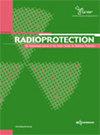Attitudes toward future motherhood among female college students in Fukushima Prefecture at seven years after the Fukushima Daiichi Nuclear Power Plant accident
IF 1.8
4区 医学
Q4 ENVIRONMENTAL SCIENCES
引用次数: 0
Abstract
This study aimed to clarify factors related to confidence in future childbirth and infant care in regard to radiation exposure at 4 and 7 yr after the Fukushima Daiichi Nuclear Power Plant disaster. A survey was conducted on 310 female college students in Fukushima Prefecture, Japan, in December 2015, and readministered to 275 students in November 2018. The analysis included 309 patients from 2015 and 253 from 2018. The Fukushima Future Parents Attitude Measure was used to assess attitudes about future childbirth and infant care in regard to radiation exposure. The results indicated that attitudes toward future childbirth were significantly influenced by self-esteem (β = –0.22), advice about radiation (β = 0.19), concerns about radiation effects on a future partner (β = –0.18), and college-related stress (β = 0.20). Moreover, attitudes toward infant care were influenced by self-esteem (β = –0.22) and perception of the genetic risks of radiation (β = –0.17). Therefore, to improve confidence in future childbirth and infant care among female college students in Fukushima, it is important to enhance self-esteem, reduce college-related stress, and create an environment where female college students feel comfortable discussing radiation concerns with experts and each other.福岛第一核电站事故发生七年后福岛县女大学生对未来做母亲的态度
本研究旨在阐明与福岛第一核电站灾难后4年和7年的辐射照射有关的未来生育和婴儿护理信心的相关因素。2015年12月,对日本福岛县的310名女大学生进行了调查,并于2018年11月对275名学生进行了重新登记。分析包括 2015 年的 309 名患者和 2018 年的 253 名患者。福岛未来父母态度量表用于评估对未来生育和婴儿护理与辐射照射有关的态度。结果表明,自尊(β = -0.22)、有关辐射的建议(β = 0.19)、担心辐射对未来伴侣的影响(β = -0.18)和大学相关压力(β = 0.20)对未来生育的态度有显著影响。此外,自尊(β = -0.22)和对辐射遗传风险的认知(β = -0.17)也影响了对婴儿护理的态度。因此,要提高福岛县女大学生对未来生育和婴儿护理的信心,重要的是要增强自尊心,减轻与大学相关的压力,并创造一种环境,让女大学生能够自在地与专家和彼此讨论辐射问题。
本文章由计算机程序翻译,如有差异,请以英文原文为准。
求助全文
约1分钟内获得全文
求助全文
来源期刊

Radioprotection
ENVIRONMENTAL SCIENCES-PUBLIC, ENVIRONMENTAL & OCCUPATIONAL HEALTH
CiteScore
3.30
自引率
54.50%
发文量
35
审稿时长
>12 weeks
期刊介绍:
Radioprotection publishes articles on all aspects of radiological protection, including non-ionising as well as ionising radiations. Fields of interest range from research, development and theory to operational matters, education and training. The very wide spectrum of its topics includes (theoretical and practical aspects): dosimetry, instrument development, specialized measuring techniques, epidemiology, biological effects (in vivo and in vitro) and risk and environmental impact assessments.
 求助内容:
求助内容: 应助结果提醒方式:
应助结果提醒方式:


